Lessons from the battle to protect the northern border
(Baonghean.vn) - Nghe An Newspaper had an interview with Associate Professor, Dr., Major General Le Van Cuong - former Director of the Institute of Strategy and Science, Ministry of Public Security on the occasion of the 43rd anniversary of the battle to protect the northern border (February 17, 1979 - February 17, 2022).
PV:Dear Major General, can you explain why China launched a war of aggression against Vietnam on February 17, 1979?
Major General Le Van Cuong:In terms of politics, there are two reasons, of which the fundamental, consistent, long-term reason comes from China's ambition for expansion and hegemony. Chinese leader Mao Zedong once declared, "We must conquer the Earth" (1959), "We must win Southeast Asia, including South Vietnam, Thailand, Burma, Malaysia and Singapore, a region like Southeast Asia is very rich, there are many minerals, worthy of the need to conquer..." (1965). China believes that before becoming the world's hegemon, it must master and occupy Southeast Asia.
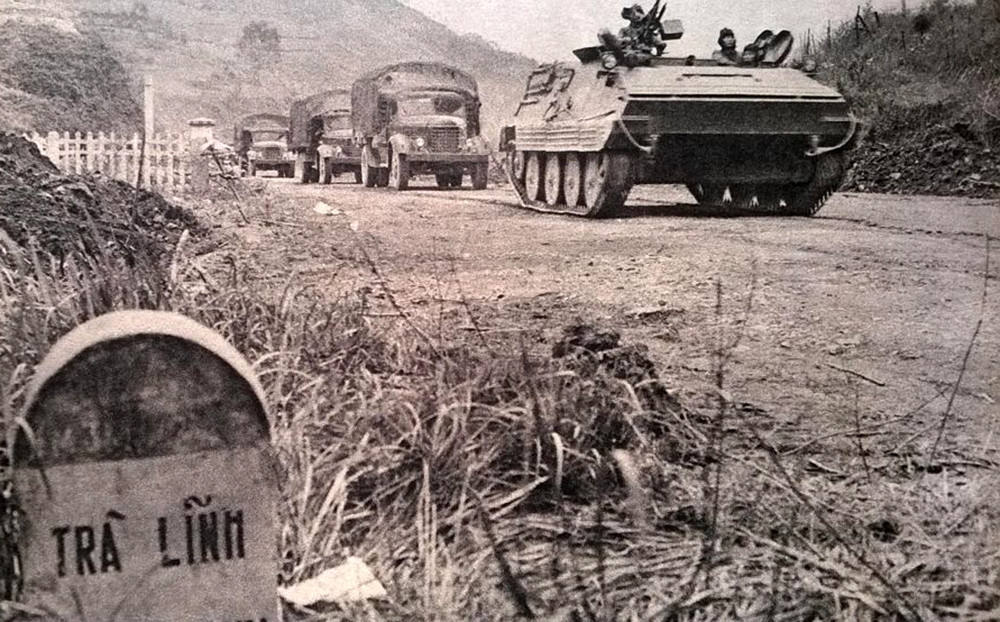 |
| On February 17, 1979, Chinese soldiers flooded across our border. Photo: Document |
The second reason is that after Vietnam's victory over the US on April 30, 1975, in China's view, Vietnam became an "obstacle" on the path of expansion to Southeast Asia, so they had to weaken Vietnam, accuse Vietnam of invading Cambodia, turn Cambodia into a vassal state, establish the Indochina Federation,...
The direct cause was that on February 7, 1979, at the request of the Cambodian people, Vietnam sent troops to save 13 million Cambodians from the Khmer Rouge genocide. It should be noted that the Khmer Rouge was an army that China provided with weapons, ammunition, clothing, etc. Believing that Vietnam had "slapped" China and discredited China, Beijing fabricated an excuse to launch a war of aggression against Vietnam.
PV:So how has China prepared for the invasion, General?
Major General Le Van Cuong:To wage a war of aggression against Vietnam was not a simple matter, so China had to prepare very carefully. Domestically, in addition to preparing material and adjusting troops to the China-Vietnam border, China in 2 years (1977 and 1978) stuffed into the ears of nearly 1 billion of its people that Vietnam was an aggressor and belligerent country. China's giant radio and television system published nearly 100,000 articles distorting Vietnam as "ungrateful" people, who received help from China but now sought every way to cooperate with the Soviet Union, preparing to invade China...
Outside the country, preparing public opinion for the war, China sought to call for support. At the end of 1978, Deng Xiaoping went to Singapore, Malaysia, Thailand, especially, when talking with Mr. Lee Kuan Yew, Deng Xiaoping told the Prime Minister of Singapore that Vietnam would unite with the Soviet Union to encircle and attack China, then attack all of Southeast Asia, in order to convince ASEAN countries to support China in attacking Vietnam.
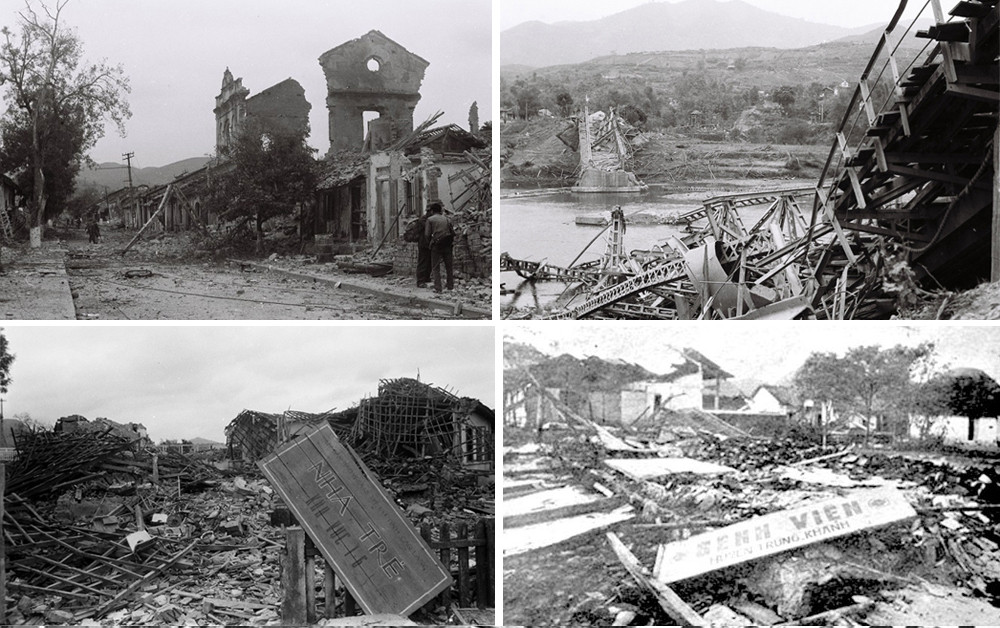 |
| Chinese troops destroyed houses, schools, hospitals, and bridges in the northern provinces. File photo |
From January 29 to February 4, 1979, Deng Xiaoping went to the United States to negotiate with President Jimmy Carter, convincing the American leader that the Soviet Union was the instigator of World War III and would certainly launch a nuclear war to destroy the United States and China. Deng Xiaoping asked Carter to cooperate, affirming that China was ready to assume the role of “Eastern NATO”, closely cooperating with the United States, Europe, and Japan to defeat the “big boss” Russia-Soviet Union and the “little boss” Vietnam.
On February 6-8, 1979, Deng Xiaoping also went to Japan, signed a peace and friendship treaty, and persuaded Japan to cooperate against the Soviet Union and Vietnam. It can be said that China had prepared very carefully at home and abroad, both in terms of material and public opinion.
PV:During the invasion of Vietnam, how did China mobilize its forces, Major General?
Major General Le Van Cuong:At 4:30 a.m. on February 17, 1979, China mobilized 600,000 troops with 9 main army corps, 13 independent infantry divisions, 6 regiments with 550 tanks, armored vehicles, 4 artillery divisions and regiments with thousands of artillery pieces of all kinds to launch a lightning attack on Vietnam. China deployed the Guangxi wing, commanded by Hua Shiyou, including the 41st, 42nd, 43rd, 53rd Army Corps; the Yunnan army wing, commanded by Duong Dac Chi, with the 11th, 13th, 14th Army Corps and the 149th Division. In this war, China used 1.06 million artillery shells, 23.8 thousand tons of ammunition, and 55 million sharp bullets.
600,000 troops is the largest invading army ever against Vietnam, from the first invasion war against the Yin invaders during the reign of the 6th Hung King to the American invasion war from 1955-1975.
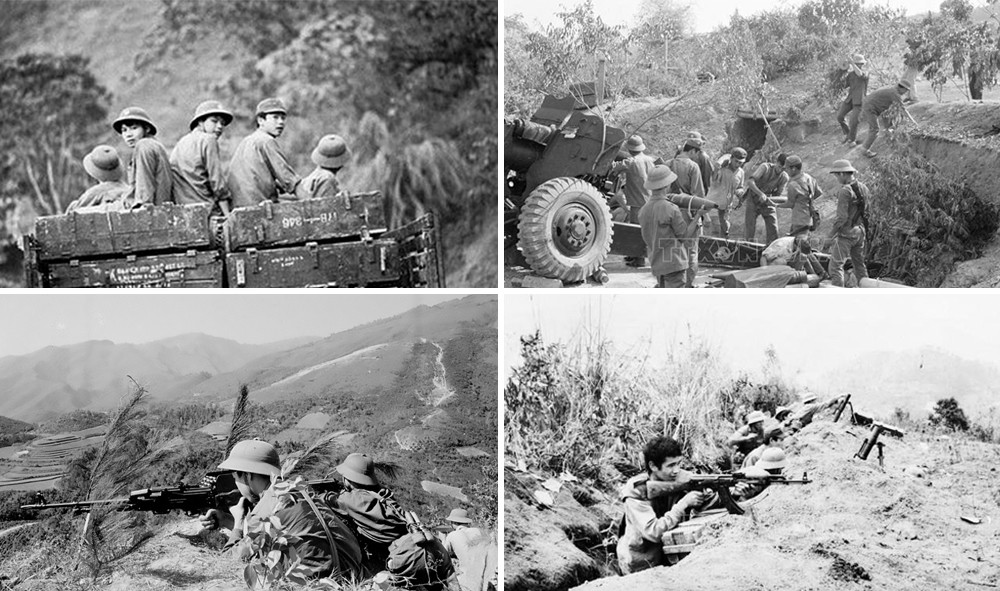 |
| Vietnamese armed forces fighting on the northern fronts. Photo: Archive |
PV:In this war, what were the losses and damages for Vietnam?
Major General Le Van Cuong:Within 1 month and 1 day (from February 17 to March 18, 1979), 600,000 Chinese troops completely destroyed the towns of Lang Son, Cao Bang, Lao Cai, and Cam Duong; 6 border provinces were leveled and completely destroyed by the Chinese invaders. 330 villages, 735 schools, 428 hospitals and clinics, 41 farms, 38 forestry farms, 81 factories and mines, 800,000 hectares of food and crops were completely destroyed. About half of the 3.5 million people in the 6 border provinces lost their homes. The Chinese army invaded Vietnam with the motto "burn everything, kill everything, destroy everything".
I would like to cite two incidents to illustrate. In Tong Chup, Hung Dao commune, Hoa An district (Cao Bang), 43 people, mostly women and children, were murdered by the enemy, their bodies thrown into a well, and covered with rocks. In Lang Son town, 100 people, all elderly, women and children, were also killed. Chinese soldiers also planted mines in Pac Bo cave - a sacred historical and cultural relic of the Vietnamese people.
PV:Sir, why did China announce its withdrawal on March 5, 1979? Public opinion believes that China has failed, what is your assessment of this?
Major General Le Van Cuong:There is no other way to say it: China completely failed in its invasion of Vietnam in 1979. In terms of material, it can be seen that, as of March 18, 1979, 62,500 Chinese soldiers were killed in battle, we captured 260 infantrymen, severely damaged 9 main army corps, burned 280 armored tanks and 270 military vehicles, and destroyed 115 Chinese mortars and rockets.
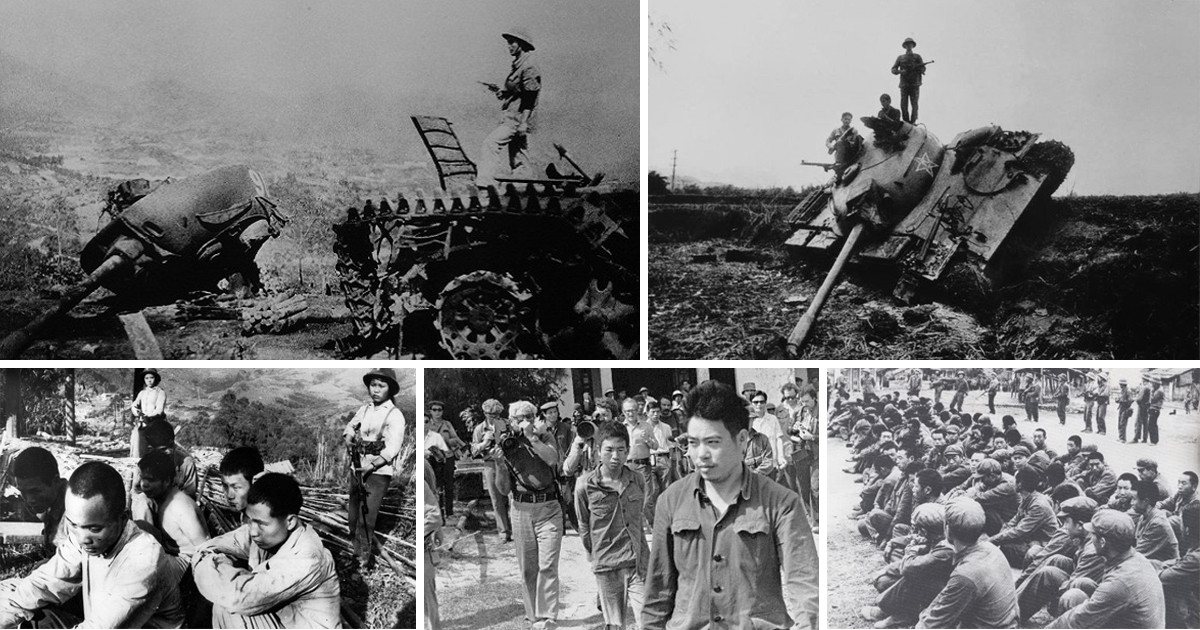 |
| Chinese tanks were shot down by Vietnamese troops during the border war and Chinese prisoners of war were captured. Photo: Archive |
But the biggest loss was that China was condemned by the whole world. The Soviet government, many countries around the world and the Helsinki International Conference issued statements calling on the international community to condemn and stop China's bloody hand.
Faced with worldwide opposition, China had never suffered such a major diplomatic defeat. They had to retreat, because the longer the war dragged on, the more dangerous it would be, not to mention the Soviet Union was ready to respond as needed on the Sino-Soviet border to support Vietnam.
PV:According to you, what lessons can we learn from the struggle against Chinese invaders?
Major General Le Van Cuong:First of all, it is a lesson in perception, we need to clearly see the nature of China and its policy towards Vietnam based on great power chauvinism, not Marxist-Leninist proletarian internationalism. Therefore, in 2003, in the strategy of defending the Fatherland in the new situation, our Party's Resolution for the first time introduced the concept of partner - object. For example, with China, in terms of economy, we cooperate with them - as partners, but in the East Sea, they are the object of Vietnam's struggle.
With an important neighbor like China, we try to establish friendly and cooperative relations, making the most of their huge market of 1.41 billion people, but definitely on the supreme principle of protecting Vietnam's independence, sovereignty, unity, territorial integrity and interests.
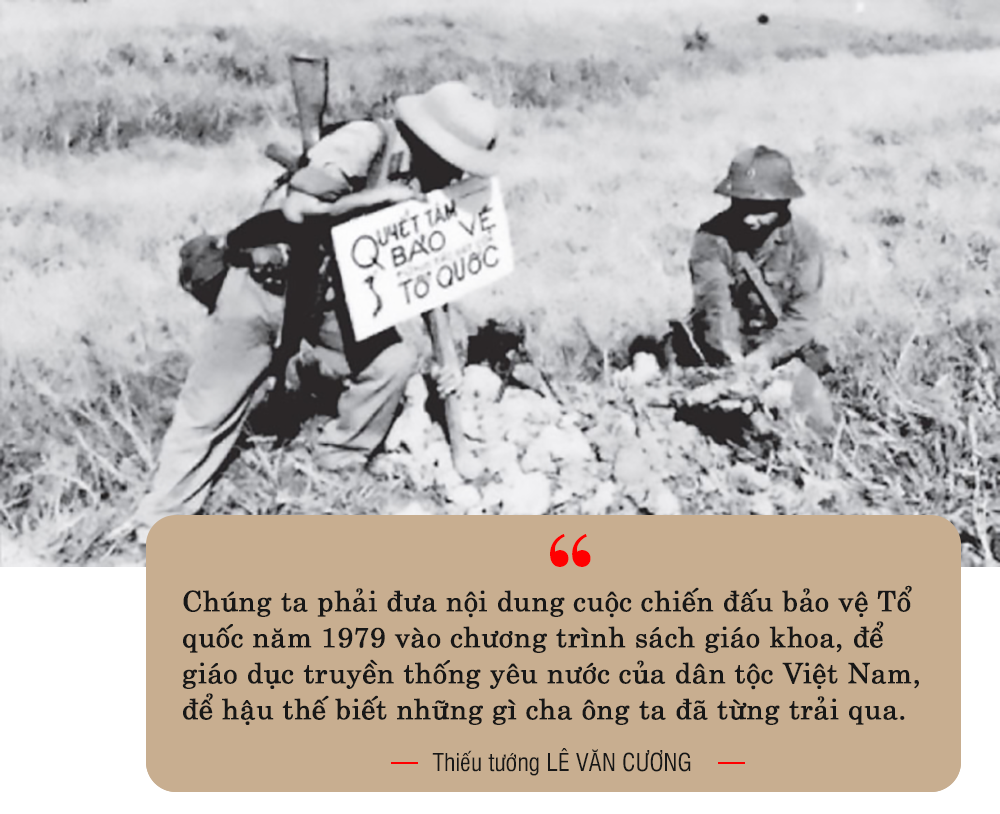 |
The third lesson is that, in parallel with strengthening friendship with China, we must strengthen and expand relations with the US, Europe, Japan, India, ASEAN..., creating a "combination" of interests, resolutely combining national strength and the strength of the times, creating more great strength to protect the Fatherland, not letting the country fall into isolation.
Fourth, there must be a policy of socio-economic development, making the people rich and the country strong, consolidating close solidarity, under the leadership of the Party, creating invincible strength that no force dares to encroach upon.
In addition, we must include the content of the 1979 war to defend the Fatherland in the textbooks, to educate the Vietnamese people on the patriotic tradition, so that future generations know what our ancestors have experienced. Do not equate or make excuses that this is inciting nationalism, damaging the Vietnam-China relationship. Finally, the Vietnam-China relationship is especially important, every Vietnamese person needs to contribute to strengthening that friendly relationship, for the national interest, for stability and world peace.


